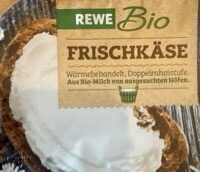
Barcode: 4337256453776
Frischkäse
HALAL
📝 Reason: All listed ingredients are Halal: milk, salt, lactic acid cultures, and microbial rennet. There are no Haram additives or doubtful ecodes present. Microbial rennet is Halal (unlike animal rennet of Haram origin). The product fits the Quranic standards for lawful foods as per Quran 5:3 and is permitted according to IFANCA and Halal Food Authority guidance.
🏷️ Category: Dairies, Fermented Foods, Fermented Milk Products, Cheeses, Fresh Cheeses, Cream Cheeses
📄 Certificates: Organic, No Gmos, De:Ohne Gentechnik, De:Pro Planet, Naturland, Vegetarisch
Ingredients:
Details
Is Frischkäse Halal? An In-Depth Look
Understanding the Halal status of food products is essential for many consumers. This post will discuss the Halal status of Frischkäse, a popular cheese made from fermented milk, including its ingredients and certifications.
What Makes Frischkäse Halal?
The Halal status of Frischkäse is confirmed as HALAL. The main ingredients include: Milk, Table salt, Lactic acid cultures, and Microbial rennet. None of these ingredients are classified as Haram (forbidden) or contain doubtful E-numbers.
Ingredients Breakdown
Let’s delve into the specific ingredients:
- Milk: This is the primary ingredient in Frischkäse. It is derived from mammals, typically cows. Unless tainted by non-Halal additives or contaminants, milk itself is Halal, complying with Quranic standards.
- Table Salt: Sodium chloride, commonly known as table salt, is a naturally occurring mineral and does not pose any Halal concerns.
- Lactic Acid Cultures: These cultures are essential for the fermentation process. Generally, they are Halal unless sourced from non-Halal animal origins, which is rare.
- Microbial Rennet: A critical coagulant used in cheese making, it is sourced from fungi or bacteria. Microbial rennet is Halal, provided it’s not genetically modified using Haram-derived genes.
E-Numbers and Their Halal Status
With the growing number of E-numbers used in food production, it’s vital to ensure their compliance with Halal standards. Here’s a summary of the ingredients and their Halal status:
- Milk: Halal, unless contaminated. Source: Halal Admin
- Table Salt: Halal. Source: Halal Food Authority
- Lactic Acid Cultures: Primarily Halal. Source: IFANCA
- Microbial Rennet: Halal provided it is not genetically modified with non-Halal sources. Sources: Halal Food Authority, IFANCA
Brand and Certification Context
While Frischkäse does not specify a brand in the provided data, its certifications play a significant role in affirming its quality and Halal compliance. Frischkäse is certified organic, non-GMO, and holds other relevant certifications such as De:Ohne Gentechnik, De:Pro Planet, and Naturland. These certifications reinforce the product’s emphasis on quality and adherence to Halal standards.
Conclusion
Frischkäse comprises Halal ingredients and aligns with the requirements set forth in the Quran. It also boasts several certifications indicative of its quality and ethical production methods. Therefore, consumers seeking Halal-certified dairy products can confidently include Frischkäse in their diet. Always ensure that you check the specific product labels and certifications to maintain compliance with your dietary preferences.
